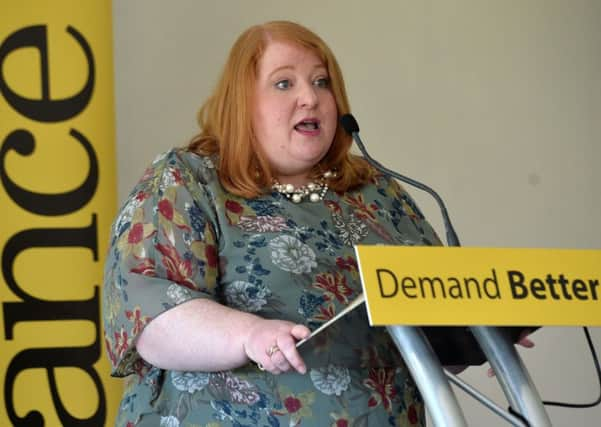Sam McBride: Naomi Long has less ground to make up in this election than when she defeated Peter Robinson


This contest will be the purest form of European election ever to be held in Northern Ireland in that it is overwhelmingly focused on an issue genuinely relevant to the EU and that is one reason why understanding the result will be unusually difficult.
Whereas European elections in Northern Ireland are traditionally only tangentially related to EU issues and primarily about local politics, this contest will be uniquely focused on a single European issue.
Advertisement
Hide AdAdvertisement
Hide AdBut will voters respond by voting based on their stance on that question, or will more traditional orange and green considerations predominate?
Disaggregating the factors behind the outcome will be difficult. But at this stage there is reason to believe that the result could be surprising. However, an unusual outcome might reflect the unparalleled circumstances of this contest, rather than allude to a sudden shift in voters’ views on the constitutional question.
Even without Brexit, the race for the final seat was likely to be tighter. In the last European election in 2014, the combined unionist vote was just under 51% but unionism took 66% of the seats.
In the 2017 Assembly election, the unionist vote fell to 46%. In the council elections earlier this month, the vote for unionist parties stood at 41.6%, down from almost 48% in the previous council elections in 2014 (neither of those figures include votes for unionist independents).
Advertisement
Hide AdAdvertisement
Hide AdEven the 2017 Westminster election, in which unionism responded to the shock of losing its Stormont majority and came out en masse to propel the DUP to a record 10 seats, saw the total unionist vote fall from 50.4% to 49.2%.
Thus, over the last three elections unionism has been consistently losing votes. That alone would increase pressure on the third MEP seat which was held by UUP veteran Jim Nicholson.
But the fact that he is not standing again increases the chances of the seat changing hands, as does the fact that the UUP’s message – a pro-Remain party now arguing to respect the result of the referendum and implement Brexit – is more complicated than those of its rivals.
TUV leader Jim Allister, who always performs well in European elections, is hoping that his experience and the clarity of his pro-Brexit message takes him ahead of the UUP candidate, Danny Kennedy.
Advertisement
Hide AdAdvertisement
Hide AdBut into that situation have entered two party leaders who are attempting to stop Brexit. SDLP leader Colum Eastwood and Alliance leader Naomi Long, are seeking to capitalise on the fact that there is no anti-Brexit unionist candidate.
Mrs Long’s candidature initially looked speculative. However, the remarkable council election swing to non-tribal parties – and especially to Alliance - opens the possibility of her being a serious contender.
Alliance starts far behind in this contest. In 2014, it had just over half the first preference votes of the UUP. To win, she will need to massively increase that first preference vote to come within touching distance of the SDLP and then hope to secure transfers from across the board – one of Alliance’s greatest electoral strengths.
The SDLP will point to the fact that in 2014 it was within touching distance of the UUP, far ahead of Alliance. But that is no guarantee of what will happen on Thursday. In 2010, Mrs Long stunned the political world by defeating DUP leader Peter Robinson in East Belfast.
Advertisement
Hide AdAdvertisement
Hide AdIn that contest she made up far more ground than would be necessary to take the third MEP seat.
Voters who wanted rid of Mr Robinson decided that although the UUP had in the past been the closest challenger, only Mrs Long could secure enough votes to win.
If that happens again this week it could cost Mr Eastwood his leadership and would be a further blow to the unionist parties.